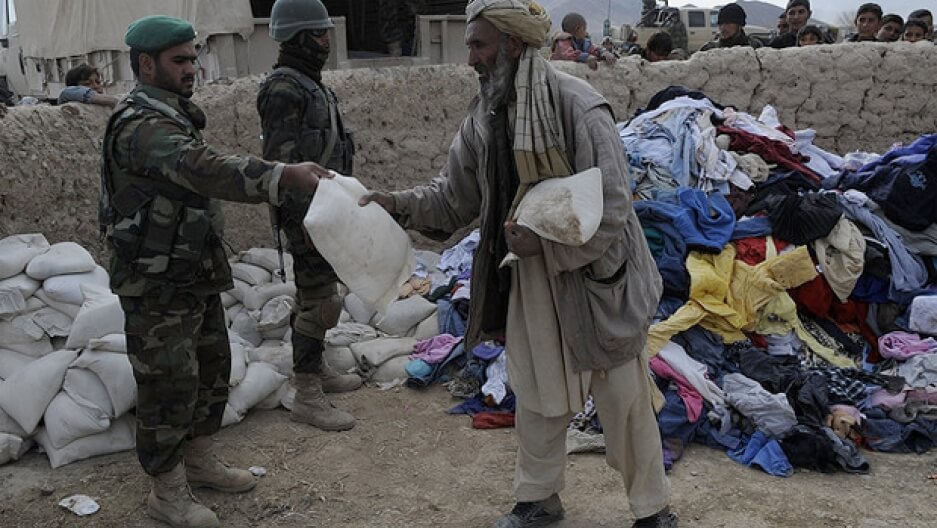On Tuesday, Geneva hosted a global donor conference virtually for Afghanistan, which saw participation from the European Union, dozens of nations, and international institutions. Put together, the group pledged a projected total of $12 billion in civilian aid to Afghanistan over the next 4 years. However, unsurprisingly the sizable donation to a nation where political stability has largely been uncertain came with a tough set of terms and conditions attached.
Benefactors have urged for progress and commitment to the nation’s ongoing peace process, which has been going on for a considerable time period now. The mistrust of the international community is reflected in the donations as this year’s donation is over $3 billion short of the amount pledged for the cause at a similar conference in Belgium in 2016. The United States and Germany are among countries that have tightened their funding cap this year. Some of the other donors like the UK have refused to commit for four years, and have only contributed donations for one year.
In his speech on Tuesday, Afghan President Ashraf Ghani requested allies to maintain the previous level of donations because among other things, they have helped provide education to children, especially girls, improve electricity supply which has increased from 8% in 2001 to more than 30%, and decreased infant mortality rate- for every 1,000 births in the country, 142 more children lived to the age of five in 2018 than they did in 2007. He further aired concerns about how a reduction in the aid package would “lead to major setbacks in public services, economic activity and living standards” and that the money was important to development, but more importantly to peace. This is also a time when the country is facing increased violence and its healthcare infrastructure is struggling under the weight of the relentless coronavirus pandemic.
Since September, the Taliban and the Afghan government have been meeting in Doha to negotiate terms for peace, but the talks have faced procedural setbacks as the Taliban have accused the government of keeping the donations to themselves, and have also been disrupted by continued violence, thus slowing down progress. Less than two weeks ago, a car bomb exploded in Kabul claiming lives of three and injuring four. Even as the donor conference was in session, violence on the ground was surging. In twin explosions that rocked the city of Bamyan, at least 17 people were killed and over 50 others injured. The Taliban has denied responsibility for the same.
Despite the uncertainties of violence and government negligence, nations have come together to contribute what they can as the World Bank has assessed the Afghan economy to have contracted sharply over the first half of 2020, due to border shut down and lockdowns, that hampered trade and the service industry due to the looming COVID-19 crisis. Up to 6 million Afghans may have also fallen under the poverty line. To help the situation in their own capacity, nations avowed the amount they would contribute to the donation. Norway pledged $72 million conditional on efforts against corruption; UK pledged $227 million in annual civilian and food aid; France pledged $104.20 million; Canada pledged $206.66 million, and Japan pledged $720 over four years. The EU pledged $1.43 billion over four years but the representative stressed on the fact that human rights gains made since 2001 should be preserved, especially in rights of women and children. Although Germany has pledged to annually contribute $511 million until 2024, it has reiterated for the need to wrap up the conflict which has been ongoing for two decades now.
The US Under Secretary of State for Political Affairs David Hale said that the US was ready to initially pledge $300 million for a year, and would release $300 million more contingent on progress made by the Central Asian nation. The Trump administration has also criticized the deployment of its troops internationally, and as of mid-January 2021, it is set to pull out 2,000 troops from Afghanistan. Several Republican politicians have called this move a mistake, while the incoming Democratic government remains wary of inheriting the volatile Middle East and Central Asia. The US invaded Afghanistan to keep tabs on the Taliban in 2001 and has since been paying roughly $800 million in civilian aid since. This is a significant step down since and will impact the progress and stability of the country as a lot more needs to be done to meet even just the basic needs of the population.
Over the past few years, international donors have been regularly meeting every four years to pledge aid to the country as Afghanistan is almost entirely dependent of foreign aid. Since 2001, especially post 9/11, Afghanistan has been a zone of conflict with US troops stationed in the fragile democracy to maintain stability in presence of the Taliban. If they intend to continue getting aid, significant progress on the ongoing peace negotiations is needed to be made by the Afghani stakeholders now so that they can continue to maintain the trust of the international community.

